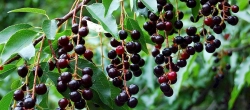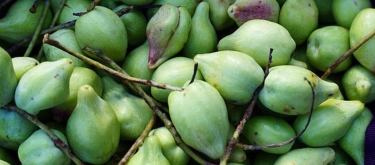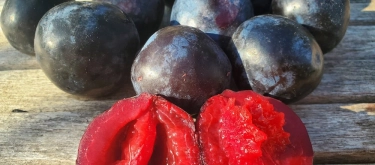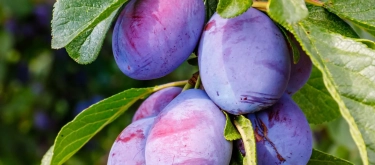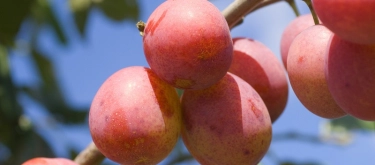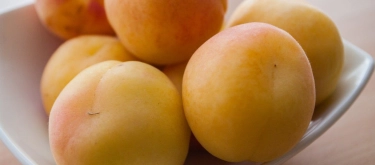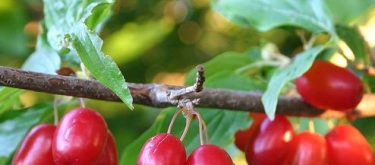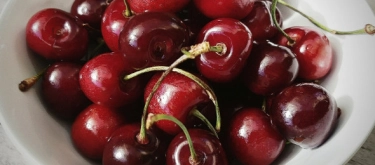Cherry Plum (Alycha): Taste, Uses, Benefits and Harm
Cherry plum, also known as alycha, is a small, vibrant fruit belonging to the plum family. Widely cultivated in Europe, Asia, and the Middle East, it is valued for its refreshing flavor, ranging from tart to mildly sweet, depending on the variety and ripeness. Cherry plum is commonly used in both savory and sweet dishes, particularly in traditional sauces, preserves, and beverages. This article explores the flavor characteristics of cherry plum, its culinary applications, health benefits, and tips for selecting and storing it.
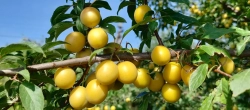
Primary Flavor Characteristics
Cherry plum has a versatile flavor profile that combines sweetness and acidity, with a slightly tart undertone. The taste can vary significantly, with ripe cherry plums offering a subtle sweetness and softer texture, while less ripe fruits are more tart and crisp. This combination of sweet and tart notes makes cherry plum an ideal ingredient for both sweet and savory dishes.
Aromatic and Taste Nuances
The aroma of cherry plum is fresh and fruity, with subtle floral undertones that become more pronounced as the fruit ripens. The skin of the fruit adds a mildly tannic quality, contributing to the tartness and enhancing its refreshing appeal.
Scientific Description of Taste and Aroma
- Aroma: Light, fruity, with faint floral notes.
- Taste: A balanced combination of sweetness and acidity, with tart notes that are more pronounced in unripe fruits.
- Texture: Firm and slightly crisp when unripe, becoming softer and juicier when fully ripe.
In-Depth Flavor Analysis of Cherry Plum
Underlying Flavor Notes
Cherry plum’s flavor changes with ripeness, offering distinct qualities:
- Sweetness: Ripe cherry plums have a mild sweetness that balances their acidity, giving the fruit a pleasant, juicy taste.
- Tartness: The tart undertone is more intense in less ripe fruits, adding a refreshing sharpness that enhances savory dishes.
- Floral and Fruity Hints: Subtle floral notes and fruity flavors add complexity to the taste, particularly when the fruit is fully ripe.
Impact of Ripeness on Flavor
- Under-ripe Cherry Plum: Tart and crisp, with a slightly astringent quality; ideal for sauces and savory applications.
- Fully Ripe Cherry Plum: Juicy and mildly sweet, with a balanced acidity; suitable for fresh eating and sweet dishes.
Textural Qualities
Cherry plum has a firm texture that becomes tender as it ripens. Its flesh is juicy and can be easily scooped, while the thin skin provides a slight resistance, adding a bit of texture to the fruit.
Culinary Uses of Cherry Plum
Primary Uses
- Sauces and Marinades: Cherry plum’s tart flavor makes it an ideal ingredient for sauces and marinades, particularly in traditional Georgian and Middle Eastern cuisines, where it adds acidity and depth.
- Preserves and Jams: Due to its natural acidity and sweetness, cherry plum is perfect for making jams, jellies, and preserves.
- Beverages: Cherry plum juice and compote are refreshing, hydrating, and often enjoyed chilled in summer.
- Desserts and Baking: Ripe cherry plums are used in pies, tarts, and cakes, where their juicy sweetness enhances baked goods.
- Pickling: Unripe cherry plums can be pickled, creating a tangy addition to salads or served as a savory side.
Ideal Pairings for Cherry Plum
- Herbs: Basil, mint, and rosemary complement the fruitiness of cherry plum.
- Spices: Cinnamon, cloves, and star anise add warmth to cherry plum sauces and preserves.
- Citrus: Lemon and lime add brightness and balance to cherry plum’s tartness in drinks and desserts.
- Nuts: Almonds, pecans, and walnuts add richness and texture to cherry plum-based desserts.
- Meat and Fish: Cherry plum pairs well with grilled or roasted meats, including lamb, chicken, and fish, adding a contrasting tartness.
Health Benefits of Cherry Plum
Key Nutrients and Benefits
- Vitamin C: Cherry plum is high in vitamin C, which supports immune health and helps promote healthy skin.
- Antioxidants: The fruit contains antioxidants that help protect cells from oxidative damage and reduce inflammation.
- Fiber: Cherry plum is rich in dietary fiber, which supports digestion and helps maintain blood sugar levels.
- Potassium: Potassium in cherry plum aids in regulating blood pressure and supports heart health.
- Low Calorie Content: Cherry plum is naturally low in calories, making it a good option for those managing weight.
Potential Precautions
- High Acidity: The acidity in cherry plum may cause discomfort for those with sensitive stomachs, especially when consumed unripe.
- Allergic Reactions: Some individuals may be sensitive to cherry plum and experience mild allergic reactions, particularly if they have sensitivities to other stone fruits.
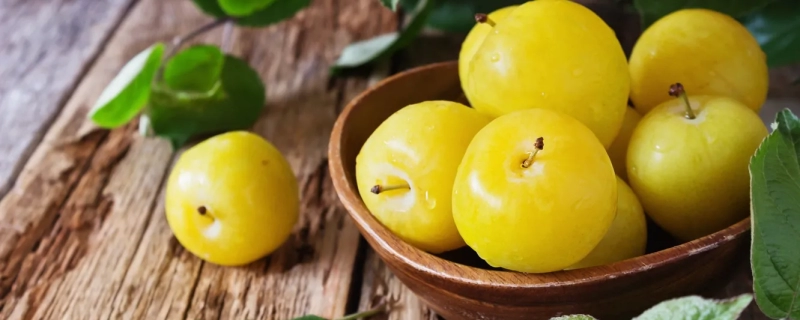
Tips for Choosing and Storing Cherry Plum
How to Choose Quality Cherry Plum
- Color and Firmness: Look for vibrant-colored cherry plums with smooth skin. Firm fruits are often tarter, while softer fruits are riper and sweeter.
- Aroma: Ripe cherry plums will have a pleasant, fresh aroma, indicating that they’re ready to eat.
Storage Recommendations
- At Room Temperature: Ripen cherry plums at room temperature if they are slightly firm, then consume within a few days.
- In the Refrigerator: Once ripe, store cherry plums in the refrigerator to extend freshness for up to a week.
- Freezing: Cherry plum can be frozen for later use in sauces, jams, or baked goods, preserving its flavor and nutritional value.
Fun Facts About Cherry Plum
- Historical Significance: Cherry plum has been cultivated for centuries in Central Asia and the Caucasus, where it’s used in traditional cooking.
- Versatility: Cherry plum is versatile and can be enjoyed at different stages of ripeness, offering a wide range of flavors.
- Natural Pectin Source: Cherry plum is naturally high in pectin, making it ideal for making jams and jellies without additional thickening agents.
